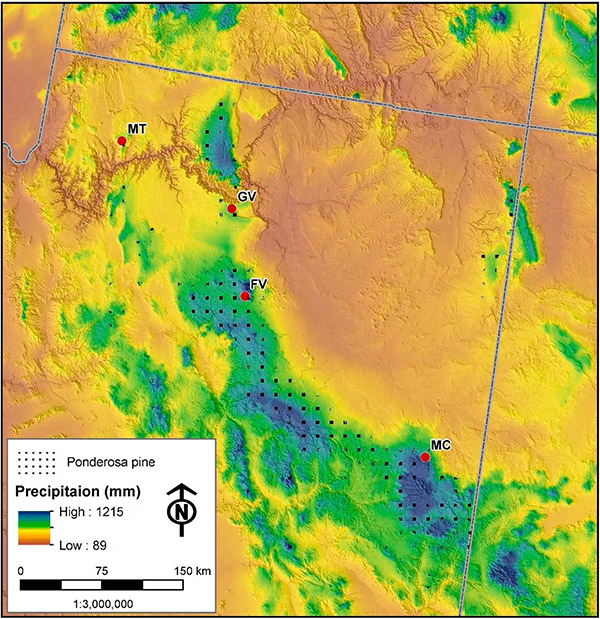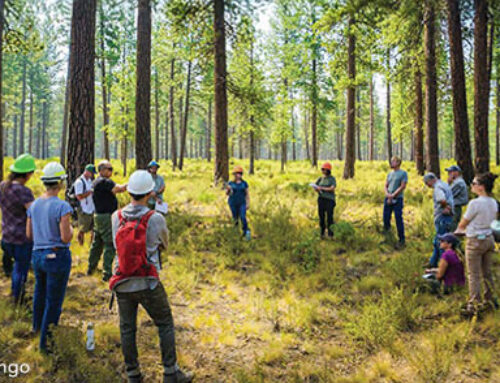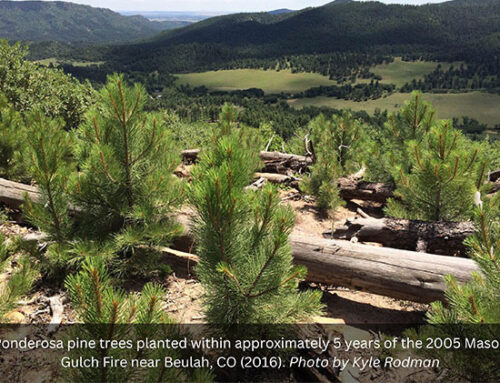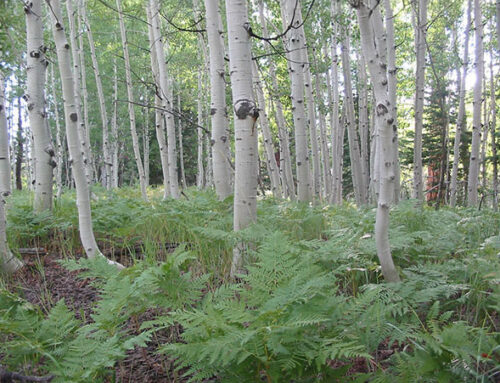A recent study led by Mike Stoddard and a team of ERI-NAU ecologists examined two decades of ecological responses to forest restoration treatments at a set of sites in ERI’s Long-term Ecological Assessment and Restoration Network (LEARN). The analysis showed that restoration treatments increase resilience to climate change in southwestern ponderosa pine forests.
Despite the widespread use of restoration treatments across the western US for the past few decades, questions remain regarding long-term effectiveness and potential for treatments to increase ecological resilience to changing climatic conditions and severe wildfire. The team’s objectives were to compare long-term forest responses in paired treated and untreated control units across a range of ponderosa pine sites to assess indicators of forest resilience to climatic stressors and potential crown fire. They also used a climate-sensitive simulation model to predict future outcomes for not only treatment pairs but historical reference conditions.
The study demonstrated that evidence-based restoration treatments — those that approximate site-specific patterns of tree density, spatial locations, and surface fire — have lasting effects on canopy fuels and forest structure, which also confers a degree of drought resistance. However, results from this study also showed a concerning loss of ponderosa pine basal area toward the end of the climate change simulation period (2090) under a moderate emissions scenario.
Results from the study also suggested that management of fire regimes even at longer-than-historical intervals may be needed to maintain basal area within the historical range of variability, and could allow sufficient opportunities for pine seedlings to establish under a moderate level of climate change.
MORE ABOUT LEARN
In the Southwest, the ERI’s Long-term Ecological Assessment and Restoration Network (LEARN) provides a scientifically rigorous approach to understanding ecological effects of restoration treatments. For more than 20 years, LEARN has had the continued support and cooperation from land management agencies due to its potential to provide a gold standard of best available science for ecosystem management.
READ FULL JOURNAL ARTICLE
Ecological restoration guided by historical reference conditions can increase resilience to climate change of southwestern U.S. Ponderosa pine forests




